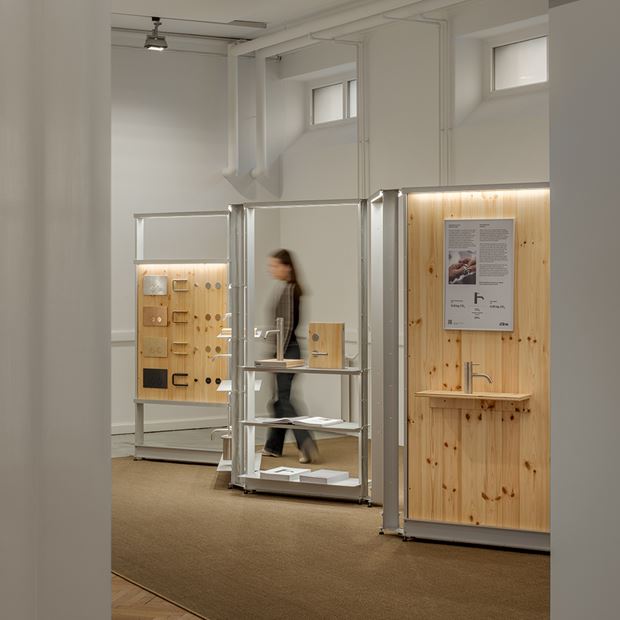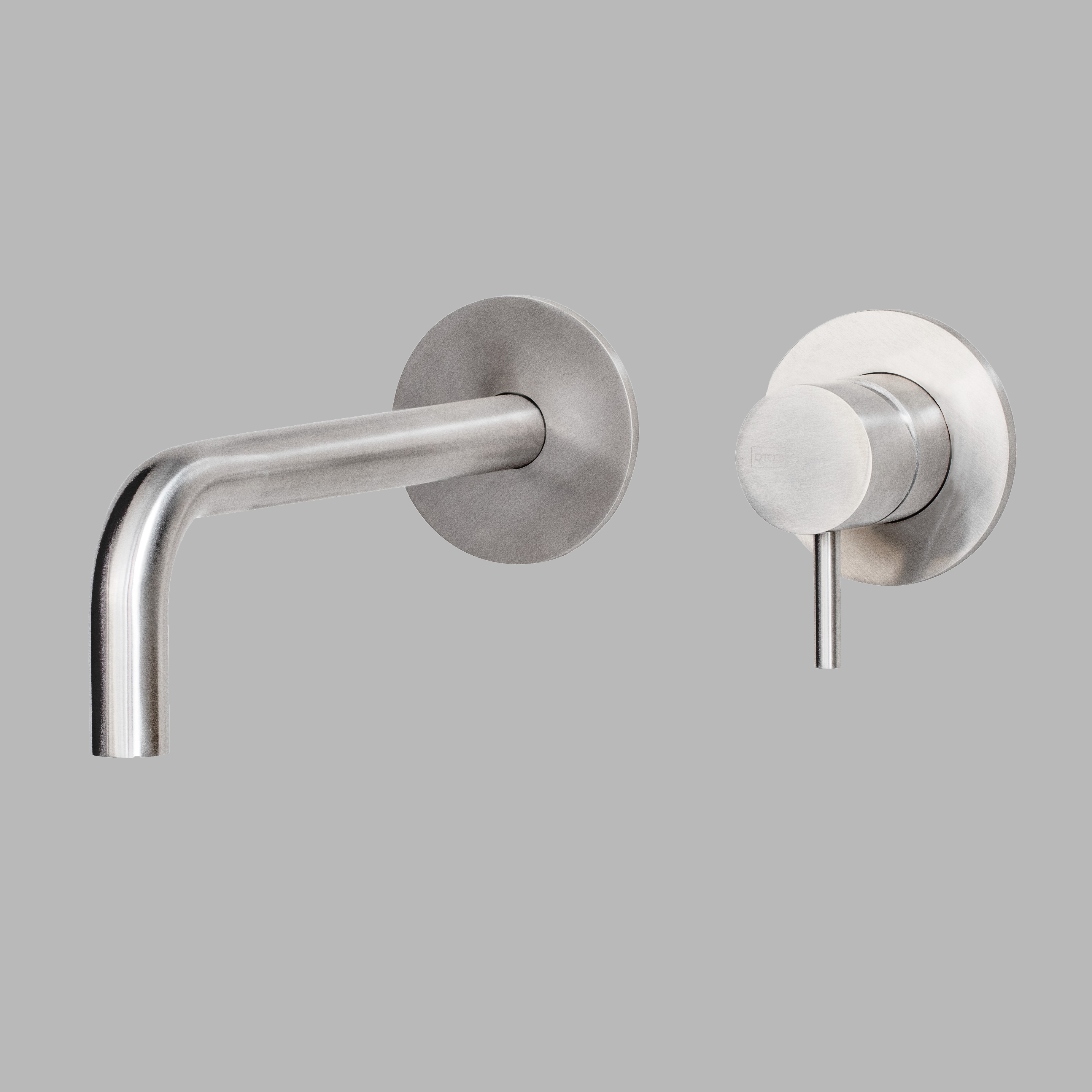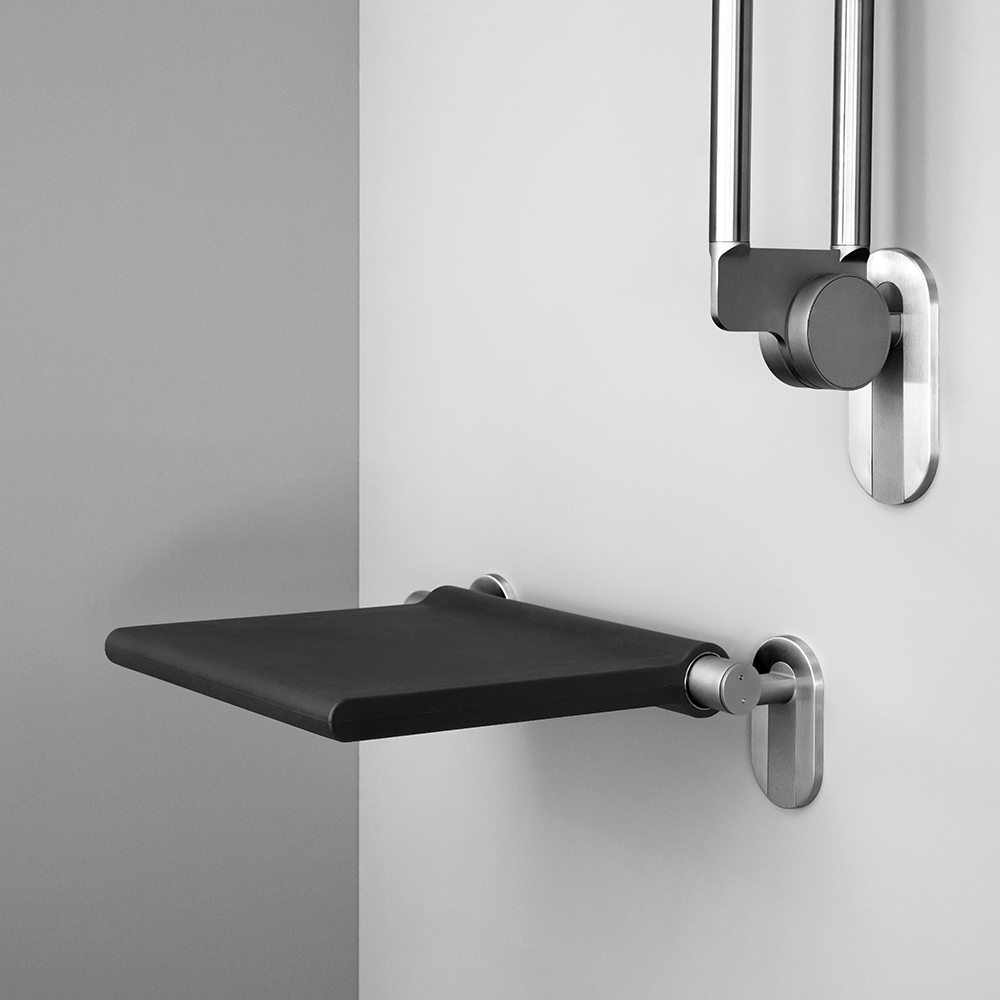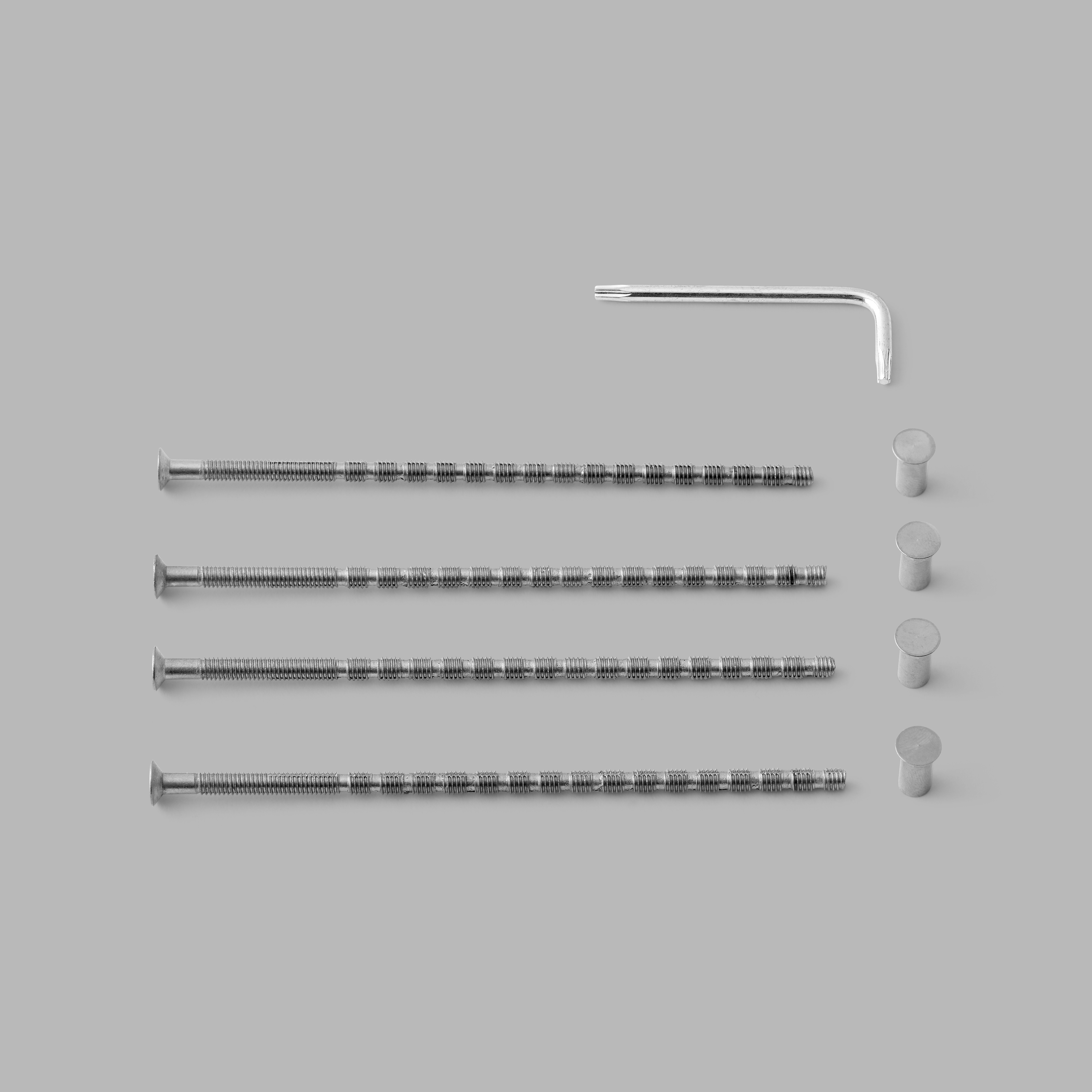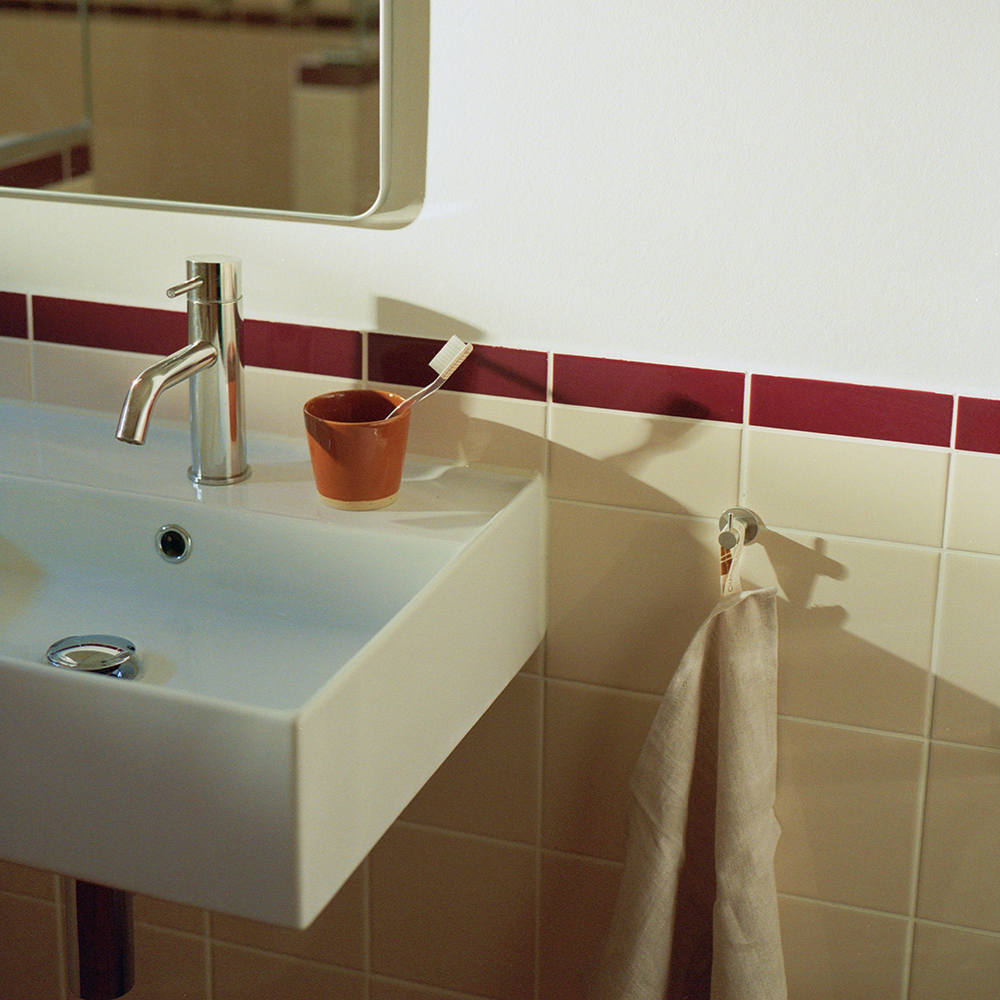d line display design by Archival Studies
We have partnered with Archival Studies to rethink how we present our products, and the result is a display system that supports our principles of timeless and long-lasting design.
A journey through d line
The display system has been developed to show the range and cohesiveness of our products and guide visitors through a journey – from discovering brand values to exploring the products within their context of use. This allows visitors to experience d line’s commitment to design and craft first-hand; "Door handles, faucets, and other fixtures are the jewellery of architecture – the points where design meets touch.", as Jesse, one of the founding partners at Archival Studies, says.
Flexible design for a timeless brand
Archival Studies, a Copenhagen-based design practice specialized in interior architecture, has a mindful and analytical approach to projects and a great respect for the already existing, “Each of our furniture and display systems are deeply rooted in the inherent properties of the materials we select. This expertise in craftsmanship is reflected in the quality of our solutions – a quality that aligns with d line’s decades of experience in design, craft, and manufacturing.”
Every Archival Studies project begins by understanding the brand and its DNA. For the collaboration with d line, the team studied the brand, the products, and values; "Our initial research included evaluating d line’s existing showroom displays to identify strengths and areas for improvement. This informed our vision for a modular system that offers a fresh perspective on product presentation." By focusing on the detail and leveraging their in-house design team and prototyping workshop, Archival Studies ensured every aspect of the system reflects precision and quality—cornerstones of both their design practice and d line.
The resulting system is a flexible solution consisting of six modules that are adaptable to different settings and product needs. It’s composed of four elements: the aluminium frames, aluminium shelves, interchangeable wooden panels and the integrated lights. Positioned at slight angles to one another, the modules support each other, becoming one entity that can be experienced from all angles. By leaving one module open, adding a door to display d line’s iconic U lever handle and integrating a wooden sink, the system invites visitors to playfully engage with both the exhibition environment and the products on display.
Archival Studies’ emphasis on adaptability and longevity also aligns perfectly with our philosophy of creating enduring solutions. The system is developed to be taken apart and re-assembled for different exhibition environments, as Jesse explains, “We see great potential in creating adaptable solutions that can be modified and expanded over time, ensuring longevity and responsiveness.” By integrating modularity, the display system not only showcases our products but also reinforces our commitment to design that transcends trends and products that last.
